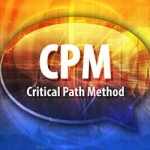
Crime scene investigators (CSIs) solve mysteries under pressure that would make most project managers sweat, yet their methods hold secrets that can transform how we lead projects. Their world of high-stakes evidence collection and unpredictable risks, all while suspects are on the run, provides a myriad of tips to project managers. By borrowing CSI techniques, … [Read more...]













